|
Advice article filter
|
Electrolytes for horses: when do you need to complement salt?Horses can handle warm weather well because they can lose the warmth by sweating. When a horse loses sweat, he doesn’t only lose moisture, but also body salts, in other words electrolytes. Those electrolytes are playing a crucial role in the water management of the horse, and even make it possible for a horse to sweat. The fluid is replenished by drinking, but what about the salts? The importance of sweatingSweating is necessary to cool down. Sweat forms a layer of moisture that evaporates, causing the body temperature to drop. If a horse cannot sweat, for example if he doesn't have enough moisture in his body, he gets overheated. What are bodysalts?Humans often takes too much salts, but in horses this is not the case. Especially in the summer months when it is warm, a lot of body salts, many body salts are lost through the sweat. A horse loses mainly sodium, potassium, chloride, calcium and magnesium. The protein who also consist in the sweat of horses, forms a layer in the coat which stimulates the evaporation. This can be recognized by many horses through white foam during sweating at friction on the neck and between the legs. Percentage of salt that a horse lose per day
Source: Zeyner et al 2013; Weight losses in excercised horses, a pilot study Complement electrolytesWhen a horse has a shortage of electrolytes it can absorb less well moisture and hold so the horse will dry out. It also reduces the elasticity of the skin and the endurances decreases. At a temperature of around 20 degrees a horses loses with light work about four liters of moisture and 30 grams of salt per hour. The horse replenishes the fluid by drinking enough water. However, supplementing the salts is another story. Forages and concentrated feed contains little salts, so you need to complement this as owner. Add kitchen salt to the feed can be an option, but horses often do not find it appetizing. If you add salt to Slobber horses do like it much more. You can also provide them a bucket of saltwater, next to the drinking water. You will see that horses choose consciously the salty water. A salt block or lick stone can also complement salt, but it has been found that the absorption of the salt varies greatly. A better solution for this is to give your horse a complete electrolyte mix, like Pavo E’lyte. This supplement contains not only sodium chloride, but also other body salts your horses loses by sweating. A leisure horse doesn’t need more than 100 gram per day, but during heavy training or extreme temperatures the advice is to feed 200 gram per day. When do you need to complement salts?Do not standard feed salt daily, only during warm weather or heavy training. If you give electrolytes before the training or competition, your horse can profit optimally from this and you prevent your horse from starting with shortages. Don’t be scared for overdose, because your horse will urinate the overdoses. But a daily substantial amount of salt can promote the development of stomach ulcers or exacerbate existing ulcers. Don’t forget to provide your horse of unlimited water. Your horse will become thirstier because of the extra salt, it is important that your horse can drink to prevent dehydration symptoms. Tips during warm weatherGiving electrolytes is not only enough during extreme heat, hereby a few extra tips:
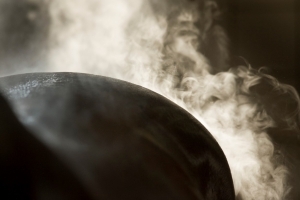
Pavo DailyPlusHigh fibre roughage mix to extend the eating time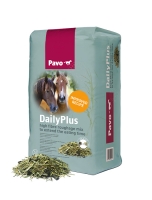 Pavo E'lyteElectrolytes for competition horses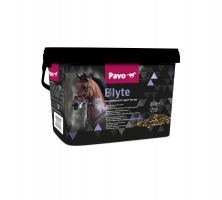 Pavo SpeediBeetHigh-fibre, quick soaking beet pulp flakes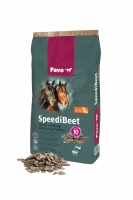 Pavo SummerFitThe daily vitamin and mineral supplement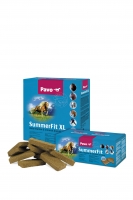 Pavo VitalDaily vitamin and mineral balancer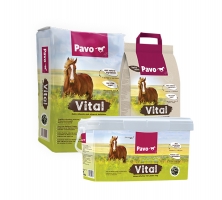 |

